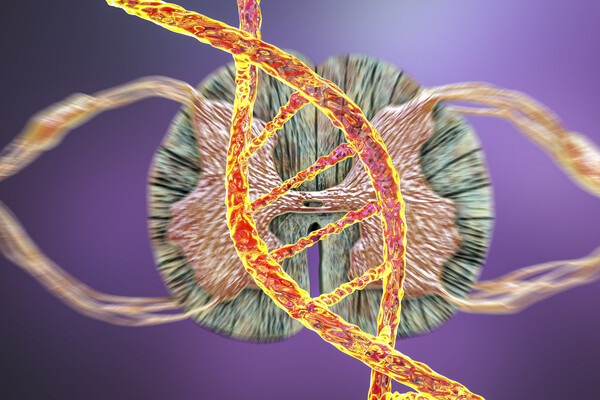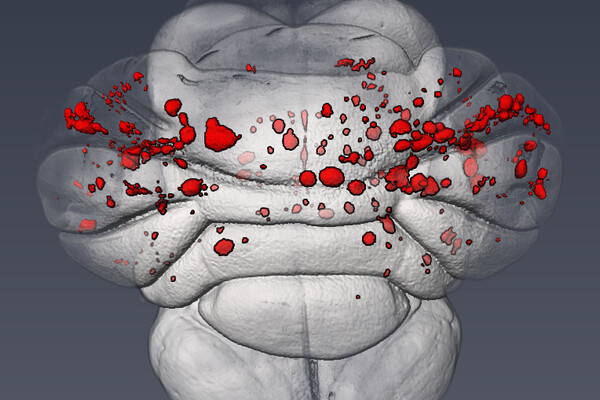5/18
Health Sciences
Penn Research Reveals Brain Region Crucial for Using Boundaries to Navigate
Imagine a room or a landscape or a city street.
Penn Study Describes the Molecular Cause of Common Cerebrovascular Disease
Cerebral cavernous malformations (CCMs) are clusters of dilated, thin-walled blood vessels in the brain that can cause stroke and seizures, yet exactly how they form is somewhat of a mystery.
Training China’s Next Generation of Dentists
Penn’s multitude of rapidly growing China connections can be viewed through a number of different prisms. Some focus on its manufacturing networks or banking system. Others see it in terms of civil engineering challenges or consumer purchasing trends.
Penn Study Adapts Proven Community Health Worker Model for Outpatient Setting
Penn's Innovative Community Health Worker (CHW) model, shown to reduce admissions and lead to better health outcomes for hospitalized patients, can now be used in outpatient settings, according to a study from researchers at the Perelman School of Medicine in the journalPopulation Health Management.
Penn Program in the Environmental Humanities Is Shaping a New Normal
There’s no doubt about it. Philadelphia weather is getting hotter and wetter each year influencing public concern about climate change.
Penn Researchers Identify a New Cause of Inherited Neuropathy
Charcot-Marie-Tooth Disease (CMT) is a family of inherited disorders of the peripheral nervous system, affecting approximately one in 2,500 Americans. Its most common iteration, CMT1, comes in many forms, most of which have to date been linked to a small set of causative genes.
2016 President’s Engagement Prize Winners Announced at Penn
Seniors Vaishak Kumar, Melanie Mariano and Kriya Patel have been named recipients of the 2016 President’s Engagement Prizes at the University of Pennsylvania. The announcement was made today by Penn President Amy Gutmann.
Genomes of Chimpanzee Parasite Species Reveal Evolution of Human Malaria, According to Penn-led Study
Understanding the origins of emerging diseases – as well as more established disease agents -- is critical to gauge future human infection risks and find new treatment and prevention approaches. This holds true for malaria, which kills more than 500,000 people a year. Symptoms, including severe anemia, pregnancy-associated malaria, and cerebral malaria, have been linked to the parasite’s ability to cause infected red blood cells to bind to the inner lining of blood vessels.
Penn, University of Michigan VA-led Study: Antipsychotic Drugs Linked to Increased Mortality Among Parkinson's Disease Patients
At least half of Parkinson’s disease patients experience psychosis at some point during the course of their illness, and physicians commonly prescribe antipsychotic drugs, such as quetiapine, to treat the condition. However, a new study by researchers at the Perelman School of Medicine at the University of Pennsylvania, the University of Michigan Medical School, and the Philadelphia and Ann Arbor Veterans Affairs (VA) Medical Centers and suggests that these drugs may do significantly more harm in a subset of patients. The findings will be published in the March 21 issue of JAMA Neurology.
Penn Biochemist Receives Protein Society Award
Benjamin Aaron Garcia, PhD, a Presidential Professor of Biochemistry and Biophysics at the Perelman School of Medicine at the University of Pennsylvania, has been selected to receive the 2016Protein Science Young Investigator Award.
In the News
What’s going on with tranq?
Jeanmarie Perron of the Perelman School of Medicine says that the appearance and progression of skin ulcers and tissue loss on xylazine users is different than with other intravenous drugs.
FULL STORY →
It’s time to end the Medicare-Medicaid merry-go-round
In an opinion essay, Rachel M. Werner of the Leonard Davis Institute, Wharton School, and Perelman School of Medicine says that Medicare and Medicaid fail to integrate coverage and coordinate care across their two plans.
FULL STORY →
The quest for treatments to keep weight off after Ozempic
Researchers at Penn are conducting a co-authored study of the brains, fat and muscle cells, and eating patterns of people trying to maintain new body sizes.
FULL STORY →
Inside Penn’s transfer center
Penn Medicine’s transfer command center gets patients from affiliated hospitals and hospitals outside Philadelphia to specialized care that can save lives, with comments from CEO Kevin Mahoney.
FULL STORY →
Operating rooms are major sources of greenhouse gasses. Penn is eliminating a form of anesthesia that hangs in the air for more than a decade after use
Penn Medicine is phasing out the anesthesia desflurane at four of its six hospitals to eliminate harmful greenhouse gases, with remarks from Greg Evans.
FULL STORY →











